- Home
- Thomas H. Cook
Blood Innocents Page 2
Blood Innocents Read online
Page 2
“Why are they pulling you off all these cases, John?” Whitlock asked.
“They’re pulling me off more than these cases,” Reardon said. “They’re pulling me off all my cases.”
“Why are they doing that?”
“Because they want me to handle that deer killing in the zoo. Over in Central Park.”
“That’s not a homicide.” Whitlock looked at Reardon suspiciously. “What the fuck is all this about?”
“You mean why are those deer so important?”
“Yeah.”
“Well, it’s not the deer. It’s who they belonged to.”
“They were just in the zoo, right?”
“They were given to the zoo by Wallace Van Allen.”
Whitlock nodded. “I get it,” he said. “Yeah, that explains it. Some fat cat gets his deer killed, so everyone downtown goes into a panic.”
“That’s about it.” Reardon admitted. He felt a stir of respect for Whitlock, his old colleague, who had triumphed for so long against internal politics and external corruption, like an old mastiff, guardian of the gate, who eats from no man’s hand. “I’m sorry we didn’t work together more all these years.”
“Yeah, me too,” Whitlock said, “but that’s the way it is.”
“Maybe we’ll get a case together someday yet.”
“Maybe. But not likely. They keep assigning me new partners every year or so. It’s always been like that. Ever since I got my gold shield they’ve been jerking me off. Jerking me around from partner to partner.”
“Yeah, I’ve noticed that.”
“They’ve been trying to get rid of me for twenty years,” Whitlock said wearily.
“Well, you’re still here.”
“Not for long,” Whitlock said. “I think I’m gonna grab the option. Early retirement, you know? I think I’m ready to let go the line, you know what I mean?”
“You mean it?”
“Yeah, I’m tired. Whipped.” Whitlock winked. “Who knows, maybe the wife and me can get to Florida. Somewhere south, out of this. Get some sun, you know, before the last sunset.”
Reardon nodded. He did not know what to say. He knew only that he did not want to see Whitlock go. He had never gone to Whitlock for anything, but he had liked knowing Whitlock was there in case he came across something he could not handle alone.
“Well, what do you have for me?” Whitlock asked.
Reardon glanced down at his desk. “The victim’s name is William Sebastian Falkner. He was murdered in the back of his dry cleaning shop last Thursday. Shot three times in the head and once in the chest with a .22-caliber pistol. The motive is presumed to be robbery, since all the money in the house and shop was taken.”
Whitlock chuckled. “Yeah, that kind of forces you to presume robbery.”
Reardon smiled. “A local teenager named Culverson was seen hanging around the shop not long before the murder. Culverson is a rough case. He’s got a juvenile record that’s pretty impressive, and he’s been under suspicion for armed robbery in the past. His last address was three blocks from the shop. We’re watching his apartment, but he hasn’t turned up. The details are in the file.” Reardon closed the folder and handed it to Whitlock. “That’s about it.”
“Okay,” Whitlock said. “I’ll check it.”
“Good luck. If you need anything, let me know. I’ll be around.”
Whitlock started to walk away; he stopped at the door and turned back to Reardon. “Sorry to hear about Millie,” he said.
Reardon had not thought about Millie for the past few moments, and suddenly hearing her name again thrust him back into a vague, aching gloom. “Thanks” was all he said.
“It happens to everybody,” Whitlock said. “A vale of tears, you know?”
“Yeah,” Reardon said. He watched Whitlock disappear up the stairs. So that was it, he thought — a bludgeoned prostitute, a strangled child, a dead gangland punk and a murdered shopkeeper.
And two slaughtered deer in the Children’s Zoo.
The whole area around the cage of the fallow deer had been cordoned off by police roadblocks. But even in the chill, late autumn air a crowd had gathered, pressing against the roadblocks and craning their necks over the shoulders of the uniformed patrolmen assigned to keep them back. Another group of police was milling around outside the deer cage, and Reardon could not see inside the cage until they parted to let him pass.
In the cage each of the bodies had been covered by a black tarpaulin. Several rivulets of blood trickled out from beneath one of the tarpaulins and ran in jagged lines to the bars. When blood flowed like that, Reardon knew, it usually meant that many wounds had been inflicted. But the blood ran in one broad swath from beneath the other tarpaulin. That would mean that only one wound had been inflicted, and that it was deep and had brought death almost immediately.
Detective Mathesson was standing calmly between the two bodies of the fallow deer. He was a very large man, but the heavy black overcoat and gray hat made him appear even more massively built. His legs were spread wide apart like a gunslinger’s and he was rubbing his gloved hands together vigorously for warmth. “Hello, John,” he said as Reardon approached.
Reardon nodded.
“Only in New York,” Mathesson said.
“What?”
“Look at it. Only in New York.”
“Oh,” Reardon said, “yeah.”
“At least they’re not people,” Mathesson said, “that’s one good thing.”
Reardon looked down at the body to the left. Covered as it was, it did not look that different from the human bodies he had seen. It was small, crumpled, motionless and, above all, utterly silent.
“In a way I wish they were,” Mathesson said.
Reardon squinted at him. “Why?”
“Because it would mean the killer’s indent, in a way.”
“What do you mean?”
“Well, if this had been done, say, to a couple of people, children or old people or women, then it wouldn’t be that uncommon,” Mathesson said. “We’ve dealt with that sort of thing before. We’re used to it. It’s not that weird. And we’d get the guy that did it. Probably pretty soon, too.”
“Maybe,” Reardon said. It was his favorite response to statements he found either ridiculous or inane.
“But this is real strange,” Mathesson said, his eyes moving back and forth between the two covered bodies, “and it’ll spread to people.”
“You think so?”
“Sure it will,” Mathesson said. “Doesn’t it always?”
“Sometimes.”
“Most of the time.” Mathesson looked at Reardon. “Don’t you remember that guy with the cats? That complaint we got about a guy giving cats baths in hydrochloric acid?”
“Yes,” Reardon said quickly. He did not need to hear it again.
“Well, we collared him a couple of times for that, but you remember it didn’t stop him. Nothing stopped him until he gave the same bath to a ten-year-old girl.”
Reardon said nothing.
“That’s the way it’ll be with this case,” Mathesson said. “Same thing. He won’t stop with animals. He won’t stop with these deer. Not if I know this guy. He’s really weird, and that means he’ll be hard to catch.”
“Well, anyway, let’s get on it,” Reardon said wearily. “We have to catch him sometime.”
“Sure.” Mathesson nodded toward the covered bodies. “You want to see them?”
“Yes,” Reardon said.
Mathesson lit a cigarette and walked over to one body. “This is the worst one.” With one quick gesture he jerked the covering from the body of the fallow deer.
Reardon was jolted by what he saw. The head had been reduced to a pulpy mass. The partition between the nostrils had been severed with one clean blow. One eyeball had been gouged from the head and now dangled by its distended muscles between the socket and the upper jaw. The neck and upper torso were such a patchwork of cuts and bruises that it would have
been difficult to tell the color of the deer without looking at its hindquarters. Both front legs were broken and one was almost severed at the knee joint.
Suddenly Reardon was seized by an almost uncontrollable sadness. He stepped back from the body and took a deep breath to stop the shuddering sensation in his chest.
“You all right?” Mathesson asked.
Reardon pressed his fingernails into his palm. Quickly he looked away from the deer, focusing his attention on the crowd in the distance. He tried to find a face to hold on to but the distance was too great, the features too blurred.
“Reardon?” Mathesson took Reardon by the arm. “Hey, you okay?”
Reardon turned away, gesturing for Mathesson to cover the body again. Mathesson swiftly obeyed and Reardon could hear the brittle sound of the tarpaulin unfolding out again, stretching over the body of the deer.
“You came back on duty too soon, John,” Mathesson said. “You should have taken a little more time off. When a man loses his wife he needs some time to take it easy, to adjust, you know?”
Reardon nodded. “I’ll be all right.”
“Sure you will. But still, maybe you should take some extra time off.”
“No,” Reardon said. “It’s okay.”
“But …”
Reardon looked at him intently. “It’s just a little gruesome after you’ve been away from it for a while.” He could feel himself trembling underneath his topcoat. He thrust his hands into his coat, his fingers searching for something to distract him. He grasped a ballpoint pen in one hand and began clicking the point in and out.
“Sure it is,” Mathesson said sympathetically. He smiled. “Christ, this one is a little gruesome even if you haven’t been away from it.”
“Uncover the other one,” Reardon said.
“Go have a cup of coffee first. There’s no big hurry about this, is there?”
“I want to finish it up now.”
Mathesson shrugged. “Okay, John.”
Slowly Mathesson made his way to the other covered body and bent down to pull the tarpaulin back. He looked at Reardon. “This one’s not so bad. Not like the other one. This one went out fast.”
When Mathesson pulled back the covering, Reardon saw what he meant. The deer’s spine had been severed at the neck in one powerful sweep, and the blood had surged from its throat in a broad, deep wave. As Reardon had suspected, death had come instantaneously to this fallow deer.
Reardon nodded for Mathesson to cover the body and gently released the pen in his pocket.
“Now why don’t you go have a cup of coffee?” Mathesson said. “All the legwork is being done. You can take a break. Nothing’s going to happen in the next few minutes.”
Reardon smiled. “Okay, maybe I will.”
As he left the cage, Reardon’s legs felt unstable under him. He was afraid and he knew that he was afraid of something that did not seem to have anything to do with the fallow deer. He was afraid of a surging feeling that had plagued him during the first years of his career, when he had walked the streets as a young policeman. In the neighborhood where he had grown up, in the destitute tenements and littered streets, there had been three avenues of escape: crime, the priesthood or the police force. He had never considered the first, but the decision to choose the police had had much of the priesthood in it. He had wanted to minister to distress, to protect helplessness and innocence from the abuse that constantly threatened them. It had been a romantic notion and he had quickly discarded its more sentimental aspects. But something of it had always lingered in him; nothing could destroy it altogether, and Reardon sensed that he should not let it be destroyed. He suspected that this sensation of protection and guardianship formed the better part of him, and he did not want to lose it. But now its power seemed to be rising in unpredictable and uncontrollable bursts. And he was afraid.
2
In the coffee shop across from the park Reardon remembered something from his childhood. It seemed to rise like the steam from his cup of coffee. He and his father had been walking back from Sunday morning Mass, his father in the one suit he owned, seemingly for no other reason than to wear it to Mass, when his father had stopped to buy a paper from the blind newsdealer at the corner. They had stopped a few feet beyond the stand and his father had begun to flip through the paper when two men stepped up to the newsstand. The man closest to the stand asked for a Times and put a one-dollar bill in the blind man’s hand.
“A single, sir?” the blind man asked.
“No,” the man said, “a ten.”
The owner smiled. “Excuse me, sir,” he said and called out into the street. “Could someone passing step over here a minute, please?”
When the second man stepped forward and asked what the problem was the blind man said, “Sorry to trouble you, but could you tell me the denomination of this bill?”
The two men looked at each other and one of them, Reardon remembered, grinned.
“It’s a ten,” the second man said.
“Thank you,” the blind man said and started counting out change for a ten.
Reardon thought that he alone had seen the exchange. But suddenly his father dropped his newspaper and wheeled around. “Just a minute there,” he said, and as the first man, startled, turned to run, Reardon saw his father pitch abruptly forward and seize the man by his coat collar.
The second man bolted and was quickly gone from sight, but Reardon’s father slammed the first one up against the side wall of the newsstand and, holding him half suspended by his coat collar, stared coldly into his face. “You’re a filthy pig,” he said, and Reardon had been shocked by the contempt in his voice. “Only the lowest of the low would stoop to robbing a blind man.” He slammed the man’s head back against the wall. “Where do you live?”
Head forced back by the fists gripping the coat together under his chin, eyes bulging, the man struggled to free himself but said nothing.
Reardon’s father slammed him against the newsstand wall again. “Where do you live?”
When the man didn’t answer, Reardon’s father suddenly released him and backhanded him across the face. Caught unprepared, the man staggered and went down on one knee, and Reardon’s father seized him by the hair and, placing a knee in the small of his back, yanked his head back.
“Tell me where you live,” he said contemptuously.
“110th Street,” the man whimpered. “212 110th Street.”
Reardon’s father released his grip on the man’s hair and sent him sprawling with a shove of his knee. “Get up,” he said and without waiting for compliance reached down and yanked the man erect by his coat collar. “Now I know where you live,” he said, “and I’ll tell you something. If I ever see you around this neighborhood again, I’m going to put your little prick in a door and slam it shut.” He flung the man away from him. “Now get out of here.”
When it was over, Reardon remembered, after the man had fled and the newsdealer had expressed his thanks, he and his father had crossed the street into a park, his father withdrawn and silent, as if troubled by his own outburst of temper. Inside the park they sat down on a bench and his father took his hand and held it.
“I said some pretty bad things back there, Johnny,” he said. “You’ll have to forgive me. I was very mad.” He paused a moment, examining Reardon’s face. “You know I’m a policeman, don’t you, son?”
“Yes, Papa.”
“A policeman,” his father said, “guards the world against scum like you just seen try to rob a poor blind man.”
Reardon remembered how he had nodded solemnly, a child acknowledging the importance of something felt but not understood.
“Do you remember the story of Cain and Abel in the Bible?” his father asked.
“Yes, Papa.”
“Well, it says how Cain killed his brother, and that was the first murder. But they don’t mention them poor guys that had to track Cain down and question him until he broke down and told the truth about what he did.
” Reardon remembered how his father had looked intently into his eyes. “Leave the punishing to God,” he had said, “but they still have to be run down. They still have to be caught.”
“Yes, Papa.”
Yes, Papa. Yes, Papa. Reardon nodded into the rising steam, but even now he was not sure what he had agreed to.
Mathesson seemed surprised when Reardon returned to the cage of the fallow deer. The cage was crowded now with police photographers and lab crews of various kinds, and Mathesson had to push through them to finally reach Reardon at the entrance of the cage. “I didn’t think you were coming back,” he said.
“I wanted to look around a little more,” Reardon said.
“Look around a little more? For what? We’ve got teams searching everywhere.”
“I just wanted to take another look.”
“Okay,” Mathesson said lightly. “I don’t think you’ll find much.”
“Probably not,” Reardon said. He stepped past Mathesson and into the cage of the fallow deer.
He walked to the middle of the cage and stopped. For a moment he stared straight ahead into the shed which had protected the deer from the weather, then slowly he turned to the right, his eyes scanning each side of the cage in turn, stopping occasionally to look out beyond the bars and toward the distant parts of the Children’s Zoo.
His custom of revisiting the crime scene several times during the course of an investigation was not generally a search for physical evidence but for an atmosphere, a sense of how and under what conditions the violence had taken place. At times he would do no more than stare at the chalk outline of the body’s position, or at a certain pattern of blood on the wall or the peculiarly savage rip of a curtain. Murder, he knew, lingered in a room like an odor, defiling and debasing everything, insisting that here within these walls something precious was unforgivably wasted. That sense of waste was murder’s common legacy, and these moments were, for Reardon, part of a quest not so much for a particular murderer but for murder itself, for the murdering mind or the conditions that created it.
Finally he had made his full circle around the cage. His eyes once again rested on the shed.

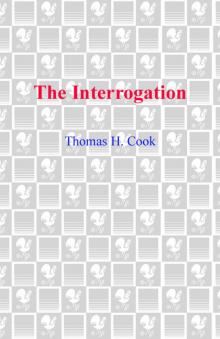 The Interrogation
The Interrogation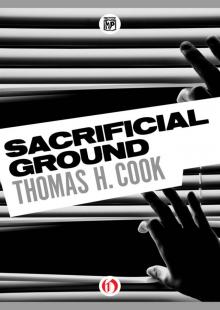 Sacrificial Ground
Sacrificial Ground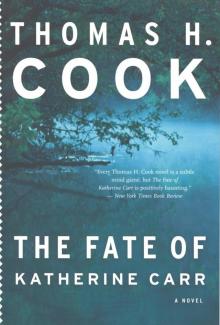 The Fate of Katherine Carr
The Fate of Katherine Carr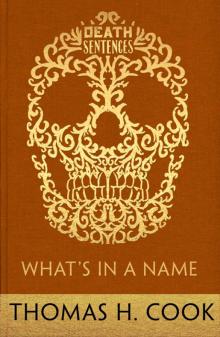 What's In A Name
What's In A Name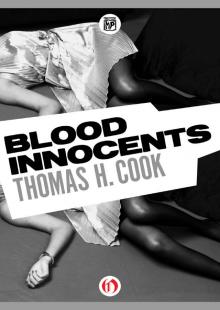 Blood Innocents
Blood Innocents Peril
Peril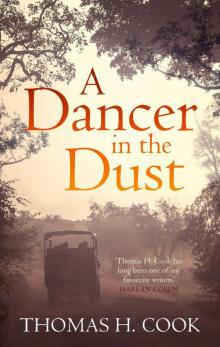 A Dancer In the Dust
A Dancer In the Dust Breakheart Hill
Breakheart Hill The Chatham School Affair
The Chatham School Affair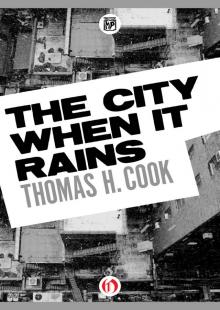 The City When It Rains
The City When It Rains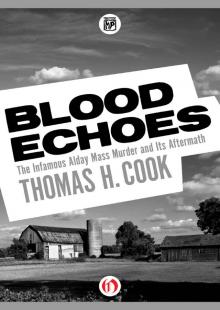 Blood Echoes
Blood Echoes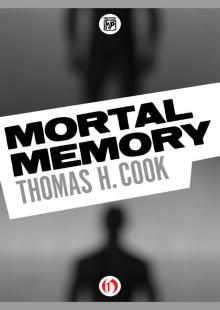 Mortal Memory
Mortal Memory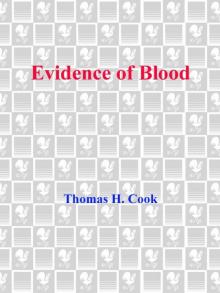 Evidence of Blood
Evidence of Blood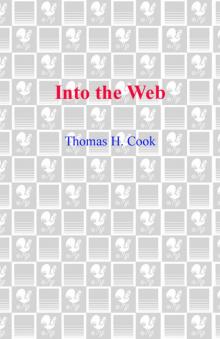 Into the Web
Into the Web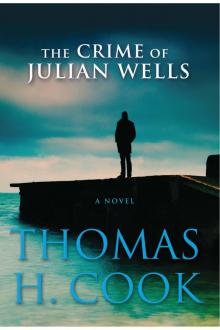 The Crime of Julian Wells
The Crime of Julian Wells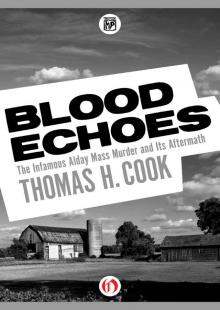 Blood Echoes: The Infamous Alday Mass Murder and Its Aftermath
Blood Echoes: The Infamous Alday Mass Murder and Its Aftermath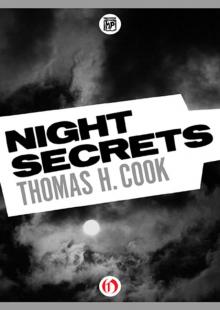 Night Secrets
Night Secrets Places in the Dark
Places in the Dark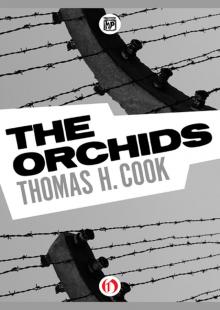 The Orchids
The Orchids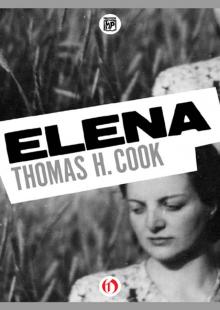 Elena
Elena Streets of Fire
Streets of Fire Instruments of Night
Instruments of Night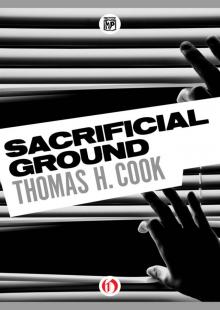 Sacrificial Ground fc-1
Sacrificial Ground fc-1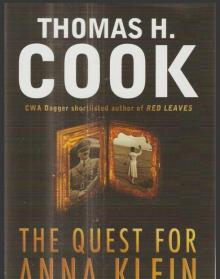 The Quest for Anna Klein
The Quest for Anna Klein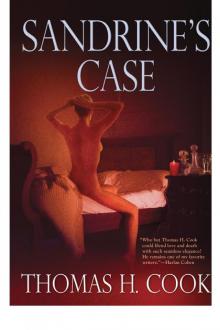 Sandrine's Case
Sandrine's Case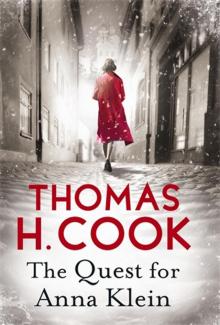 Quest for Anna Klein, The
Quest for Anna Klein, The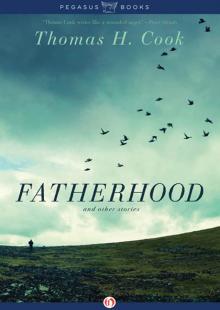 Fatherhood
Fatherhood Flesh and Blood
Flesh and Blood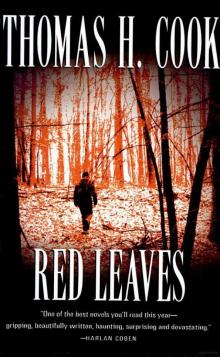 Red Leaves
Red Leaves